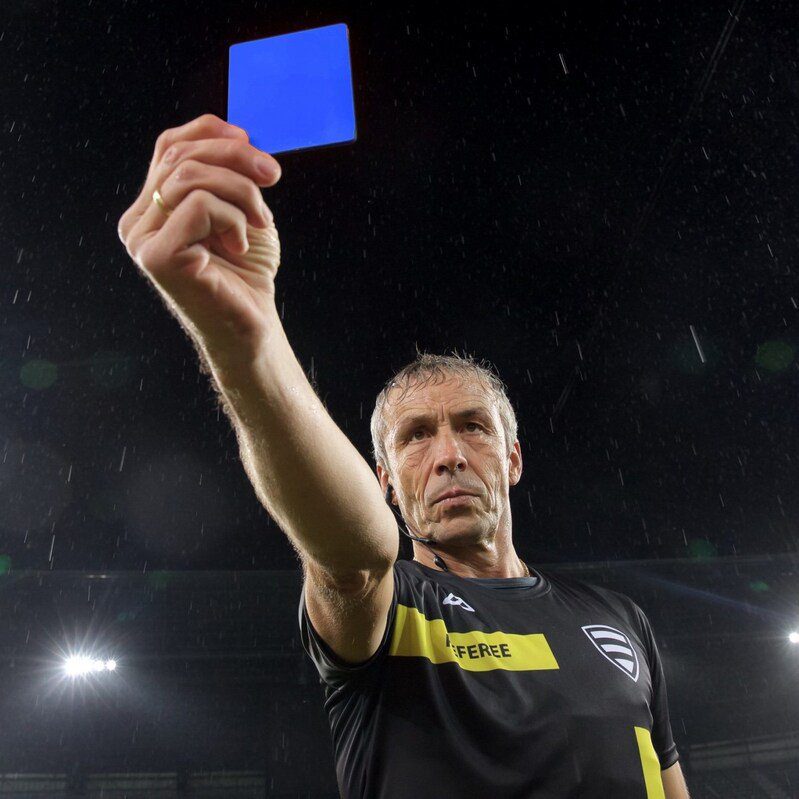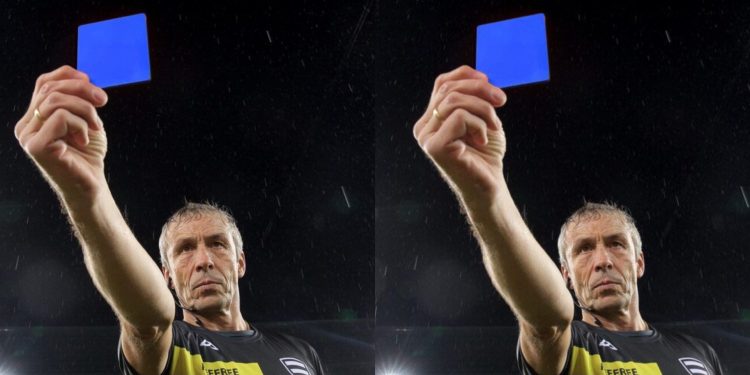The International Football Association Board (IFAB) is set to introduce blue cards to professional football, according to reports. The move, slated for testing at the elite level, represents a significant shift in disciplinary measures, as players could now face a temporary suspension for a period of 10 minutes.
The Telegraph suggests that the decision to implement blue cards follows the success of sin-bin trials in grassroots football in England and the use of blue cards in Welsh grassroots competitions this season. IFAB has reportedly given its approval for the trial, with an official announcement expected on Friday.
The key innovation lies in the colour choice, as the cards will be blue rather than the previously considered orange. This decision aims to establish a clearer distinction between the existing red and yellow cards. The proposed change, while not immediately applicable in top-tier competitions, is anticipated to undergo testing to address potential challenges before full implementation.
Players receiving a blue card would be required to leave the pitch for 10 minutes, a consequence for committing cynical fouls or displaying dissent towards match officials. This strategic measure aims to provide a more severe penalty for offences that fall short of warranting an immediate dismissal.

Trials in elite-level competitions could commence as early as the upcoming summer, with the Football Association (FA) contemplating the inclusion of the FA Cup and Women’s FA Cup as testing grounds in the next season. The potential introduction of sinbins in the Premier League was already reported last November, hinting at a broader shift in disciplinary tactics.
It has been clarified that two blue cards in a single match would result in a red card, emphasising the cumulative effect of repeated infractions. The idea is to discourage persistent misconduct and maintain the integrity of the game.
However, UEFA president Aleksander Ceferin has expressed reservations about adopting such radical changes in European competitions. He firmly stated, “It’s not football anymore. We will not use them in the UEFA competition.” Ceferin emphasised the importance of preserving the essence of the sport and hinted at a potential reassessment of UEFA’s stance if the trials lead to an official change in football law.
While the proposed introduction of blue cards marks a departure from traditional disciplinary methods, the football community awaits the outcomes of the trials to determine the impact on the game’s future. As IFAB charts new territories in football regulation, the debate over maintaining the sport’s integrity versus embracing modern adaptations is likely to continue.



